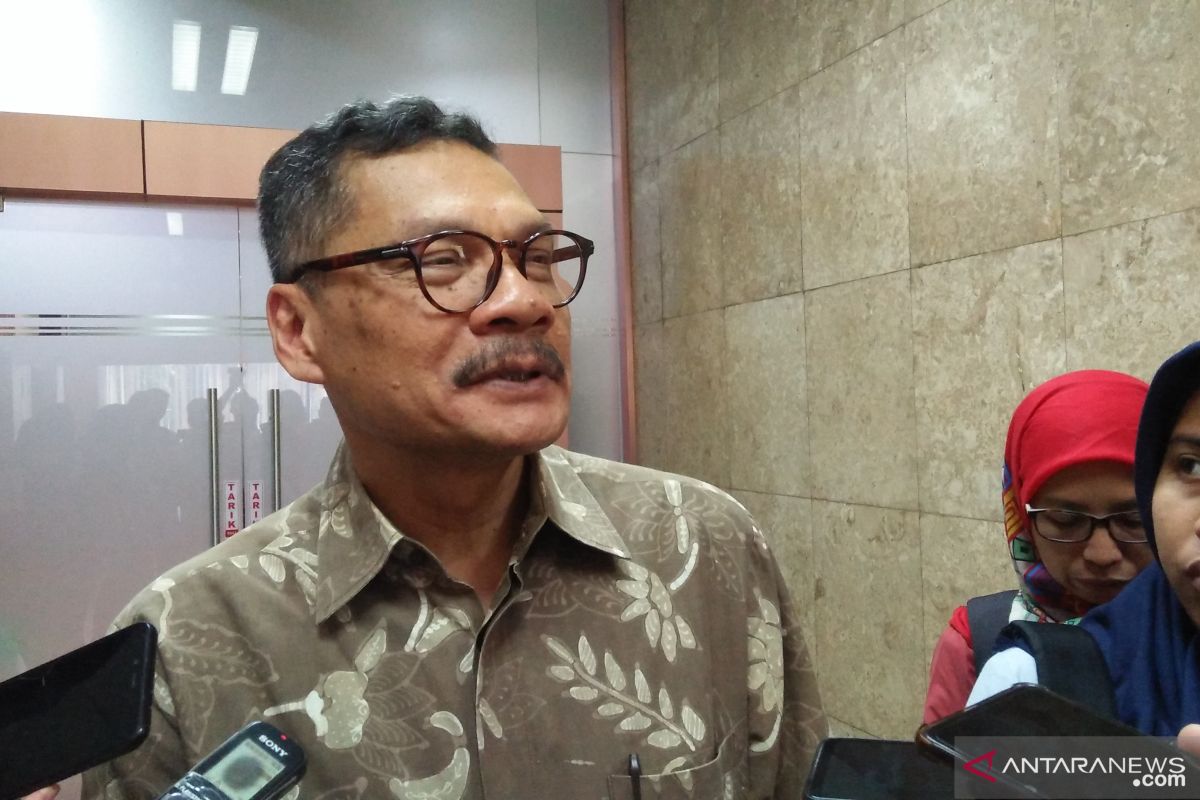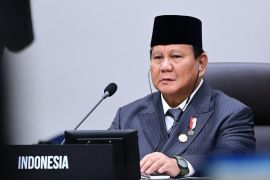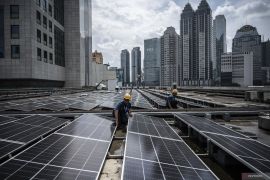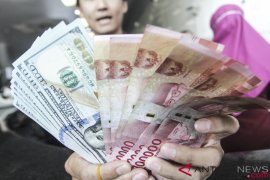Despite the revised growth of the IMF, the Indonesian economy is stronger than other countriesJakarta (ANTARA) - The government is optimistic that Indonesia's economy will remain strong even though the International Monetary Fund (IMF) has corrected its global economic growth projections. "Despite the revised growth from the IMF, the Indonesian economy is stronger than other countries," Deputy Macro Economy and Finance at the Coordinating Ministry of Economic Affairs Iskandar Simorangkir said after opening the socialization of the KUR implementation guidelines in Jakarta on Tuesday.
The optimism came from a number of indicators, including the entry of investment into Indonesia worth Rp800 trillion after the approval of the tax facility and tax holiday, according to him.
In addition, the contribution of purchasing power through the large domestic consumption sector reaching 56 to 57 percent of Indonesia's economic growth.
The consumption sector is a mainstay of Indonesia to encourage economic growth to survive to around five percent, he said. Meanwhile, the revision of global economic growth is influenced by slowing world exports.
"From our study of 120 countries, 76 percent of exports are negative. So which countries can survive? Countries that have large domestic demand," Iskandar Simorangkir said.
Indonesia's economic growth in 2019 would reach 5.04 to 5.08 percent, he projected. RI’s economic growth is under China in the ranks of 20 world economies or G20, he continued.
Although China was hit by a trade war with the United States, its economy grew at around six percent because it was able to maintain the domestic consumption sector.
Other factors driving Indonesia's optimism were diversification programs of energy product, such as a 30 percent policy on palm oil or B30, production at the Petrochemical refinery in Tuban, and green energy in Plaju, he continued.
In addition, the Omnibus Law which is to be enacted as a law in April 2020 is expected to open investment in Indonesia.
Indonesian diplomats were also expected to carry out economic diplomacy abroad, thereby widening access to investment in the country, he said.
Earlier, the IMF in its latest projection revised world economic growth. In a publication titled 'Tentative Stabilization, Sluggish Recovery', The IMF projected that global economic growth in 2019 would reach 2.9 percent, down 0.1 from the previous projection of three percent.
In 2020, global economic growth is projected to reach 3.3 percent or down 0.1 percent from the previous projection and in 2021 it will be cut 0.2 percent from 3.6 percent to 3.4 percent.
The factors driving the growth revision included uncertainty on global trade, geopolitical tension and pressure on developing countries, the IMF has said.
Related news: Indonesia's economic growth projected at 5.14 percent in 2020
Related news: Bappenas reveals strategies to attain economic growth of six percent
Translator: Dewa Ketut, Azis Kurmala
Editor: Rahmad Nasution
Copyright © ANTARA 2020











